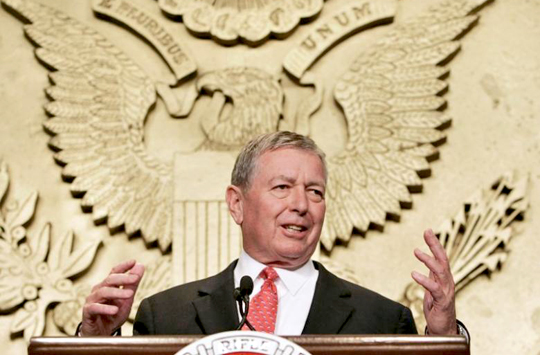Doha, Jun 11: The Government of Qatar, which has been facing criticism across the world, has hired ex- U.S. attorney general John Ashcroft, in order to rebut the accusations made by U.S. President Donald Trump and its Arab neighbors that it supports terrorism.

Ashcroft was the attorney general of the United States during the Sept. 11 attack, reported the New York Time, quoting Reuters.
As per reports, Qatar will pay the Ashcroft Law Firm $2.5 million, in order to confirm its efforts to fight global terrorism and comply with financial regulations including U.S. Treasury rules.
Recently, Bahrain, the United Arab Emirates, Saudi Arabia, Egypt, Yemen, Libya's transitional government, the Republic of Maldives and the Republic of Mauritius severed diplomatic relations with Qatar in retaliation for its alleged support to terrorism and extremist ideology.
Mauritania and the Comoro Islands joined in later. Jordan and Djibouti downgraded the status of their diplomatic missions.
Some countries declared a number of other measures, including the termination of sea and air links and the expulsion of Qatari diplomats and subjects.
Iran, a close ally of Qatar, blamed the developments on U.S. President Donald Trump who recently visited the Middle East.
However, Trump unfazed by the accusation, gloated about his recent visit to the Middle east, which according to him paved the way for this move as he said in a series of tweets, "So good to see the Saudi Arabia visit with the King and 50 countries already paying off. They said they would take a hard line on funding extremism, and all reference was pointing to Qatar. Perhaps this will be the beginning of the end to the horror of terrorism!"
"During my recent trip to the Middle East I stated that there can no longer be funding of Radical Ideology. Leaders pointed to Qatar - look!," he said.
Meanwhile, Russian President Vladimir Putin in a telephone conversation with Qatar's Emir Tamim bin Hamad Al Thani reaffirmed Moscow was firmly in favor of tackling crises by political and diplomatic means through a dialogue.
The Kremlin hopes the Qatar affair will not intervene with the struggle against international terrorism.





Comments
Add new comment